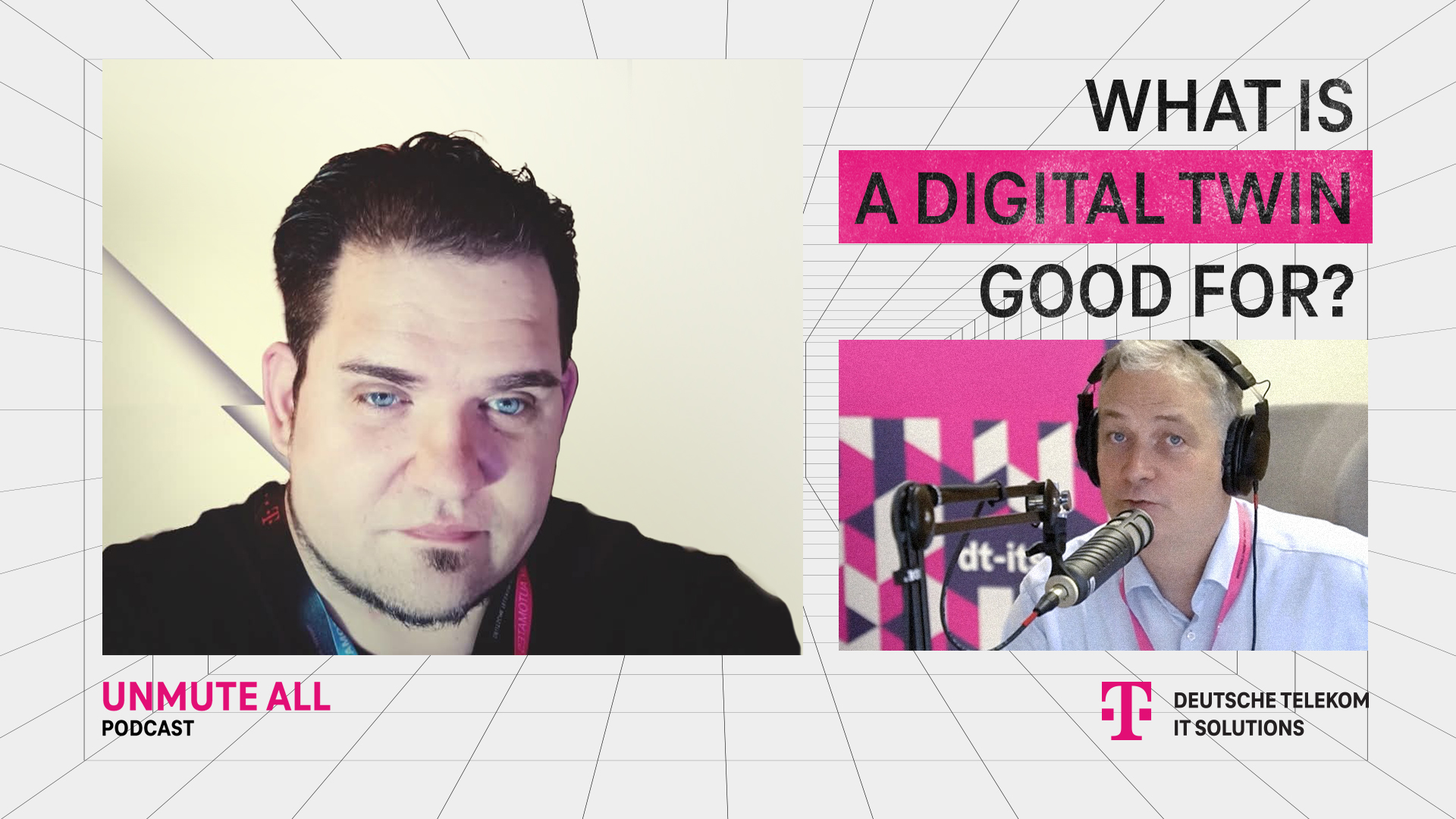Digital Twins and Virtual Factories – Exploring the Omniverse in Industrial Innovation

This episode of Unmute All brings a forward-looking conversation between Dávid Zilahy, Senior Business Development Manager at Deutsche Telekom IT Solutions Hungary and host Péter Civin. The focus: how digital twins, robot simulations, and virtual production environments powered by the Omniverse are changing the way we think about manufacturing and industrial optimization.
Simulating the real world, virtually
Dávid walks us through how the Omniverse is being used to build lifelike, physics-based simulations of factories — not just for visual effect, but for real operational planning and optimization. From robotic arms and conveyor belts to lighting conditions and machine behavior, every aspect of a production environment can be recreated digitally and tested before real-world implementation. The conversation explores how this kind of simulation enables faster, safer, and smarter decisions
From theory to optimization
A key insight from the episode is the shift from conceptual demos to concrete use cases. The technology is already being applied to improve takt time efficiency, evaluate human-machine interaction, and reduce production errors. Dávid shares examples from the automotive sector, where digital twins of assembly lines help teams simulate operator movement, tool access, and even ergonomics.
Additionally, he introduces the idea of virtual walkthroughs where managers can conduct daily process reviews remotely, inspecting every detail of a plant’s operation in a shared, virtual environment.
Cross-functional collaboration and smarter workflows
One major challenge in traditional manufacturing is siloed software and disconnected systems. Dávid emphasizes that the Omniverse allows for a more unified approach, using standard formats like UDF to integrate various machines, robotics platforms, and design tools into a cohesive, collaborative environment.
This interoperability not only improves engineering workflows, but also opens doors for real-time adjustments and better decision-making — from predictive maintenance to line balancing and resource planning.
The human side of automation
While much of the episode focuses on machines, motion paths, and efficiency metrics, Dávid also highlights the human benefit. Automation isn’t about replacing people, but rather improving their safety, supporting their work, and reducing repetitive or ergonomically risky tasks.
By simulating and optimizing these processes beforehand, companies can reduce errors, downtime, and waste — creating a more resilient and sustainable production system overall.
Conclusion
This episode of Unmute All podcast is a glimpse into how digital twins and industrial metaplatforms are becoming powerful tools for rethinking the future of production. Dávid Zilahy’s insights offer a compelling case for adopting simulation and virtual integration — not as futuristic experiments, but as practical solutions that are already making an impact in real factories today.
It’s a must-listen for anyone working at the intersection of manufacturing, automation, and digital transformation.
Listen to the episode here (Hungarian): https://www.deutschetelekomitsolutions.hu/podcasts/mire-jo-egy-virtualis-gyar/